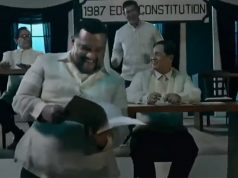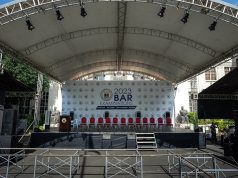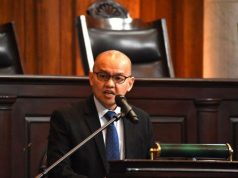MANILA, Philippines — Opposition members of the House of Representatives asked the Supreme Court to reverse its ruling upholding Proclamation No. 216, which placed Mindanao under martial law, and declare it unconstitutional.
The 54-page motion for reconsideration filed Friday morning, July 21, Friday said the Supreme Court was “abdicating its special jurisdiction to fully review the factual sufficiency of Proclamation No. 216,” issued by President Rodrigo Duterte on May 23, soon after fighting between extremist gunmen and government forces broke out in Marawi, placing Mindanao under martial law for 60 days.
The motion of Representatives Edcel Lagman of Albay, Teddy Baguilat of Ifugao, Emmanuel Billones of Capiz, Tomas Villarin of Akbayan and Gary Alejano of Magdalo, was filed a day before Congress meets in a special session called by Duterte to consider his request to extend martial law to December 31.
It challenged the factual sufficiency of Proclamation No. 216 under Section 18 of Article VII of the Constitution, which provides:
“The Supreme Court may review, in an appropriate proceeding filed by any citizen, the sufficiency of the factual basis of the proclamation of martial law or the suspension of the privilege of the writ or the extension thereof, and must promulgate its decision thereon within thirty days from its filing.”
In a majority decision on July 4, the high court ruled that Proclamation No. 216 was constitutional.
But Lagman said the verdict was “flawed and tainted because it deliberately weakened the Supreme Court’s power of judicial review” and accorded Duterte “undue concessions” such as the following:
- Claiming its lack of competence to ably determine the facts on the ground
- Admitting a supposed “institutional incapacity” to vet relevant facts
- Unduly deferring to the President’s logistical superiority to gather and evaluate intelligence information
- Granting excessive leeway to the President’s exercise of emergency powers
- Conceding the applicability of presumptions of regularity and good faith in favor of the President, thereby emaciating the Supreme Court’s power of judicial review under Section 18 of Article VII
Lagman noted that Chief Justice Maria Lourdes Sereno, in her dissent, said “the majority emaciated the power of judicial review by giving excessive leeway to the President.”
The Albay representative and his co-petitioners maintained there was no actual rebellion in Marawi City and the rest of Mindanao when Duterte declared martial law and suspended the privilege of the writ of habeas corpus.
What was happening in Marawi then, they said, was “lawless violence amounting to terrorism.”
Under the Constitution the declaration of martial law or the suspension of the writ of habeas corpus is based solely on actual rebellion or invasion, and only when the public safety requires these.
The petition told the high court that the “appalling escalation of deaths of soldiers and terrorists, including innocent civilians; massive destruction of both public and private properties; and the widespread displacement of residents, many of whom have died in cramped and unsanitary makeshift evacuation centers, are the horrific aftermath of the declaration of martial law, which were not the prevailing conditions at the time Proclamation No. 216 was issued on May 23, 2017.”
“This tragic aftermath could have been avoided had martial law not been declared. The improvident and unconstitutional imposition gave the military and police forces the go-signal to inordinately intensify their air strikes and land assaults which resulted to the wanton devastation of Marawi City and a looming humanitarian crisis,” it added.
READ A COPY OF THE MOTION:








